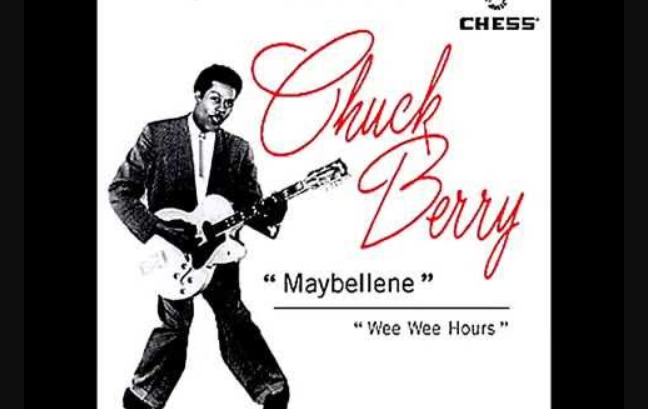“The dollar dictates what kind of music has to be written,” Chuck Berry used to say when asked in interviews about the meaning of his music, his lyrics, often bordering on the lines that separate the ethically correct. : youth discontent, rock, and roll: be careful, before inventing this expression to define a whole generational musical movement, in the black slang of those fifties rock and roll were two words commonly used in bluesman lyrics to describe the sexual activity.
John Lennon once said that if it were to give rock and roll another name, this would be Chuck Berry.
You’re bloody well right, John.
Charles Edward Anderson Berry is one of the founding fathers of the good old.
More than six decades ago, he was beginning to pave his extraordinary road in the history of music.
A few years before his cousin, Marvin, called him to indicate that new sound he was looking for – “Listen to this!” -, Chuck recorded what would become his first success.
For himself, a country, not a rock. “‘ Maybellene ’was much more of a country song, with country lyrics. Maybe a little faster, but basically a country ”.
In fact, the inspiration for “Maybellene” is, in fact, a very traditional country song called “Ida Red”, hit by Bob Wills & The Texas Playboys. Chuck Berry said that the music was perfect for playing in mixed clubs, places with whites and blacks – “salt and pepper clubs”, he joked.
When Chuck came to Chicago at the hands of Muddy Waters, he showed his version of “Ida Red” – renamed “Ida Mae” – to Leonard Chess, the owner of Chess Records. Among the songs presented, it was exactly what the boss of the label liked most. However, before recording, Chess asked Chuck to change the name and lyrics in order to avoid copyright and related issues.
Chuck transformed “Ida Red” into “Maybellene”, a song about a woman, with spices from fast cars and testosterone, perfect for young people in the mid-50’s. The label granted co-authorship of the music to DJ Alan Freed, with the aim of promoting the work. The popular jabá, something very common at the time and that survives today, times of MP3.
The adaptation proved to be hard to crack at the time of recording. There were 36 takes until the birth of “Maybellene”. Chuck and partners Johnnie Johnson (piano), Willie Dixon (bass), and Eddie Hardy (drums) sweated to finish the song.
It was worth it: “Maybellene” reached # 5 on the Billboard rock charts and R&B # 1 and made Chuck Berry take off.
In the wake of his debut, he would release other hit singles, such as “Roll Over Beethoven”, “Rock and Roll Music”, “Sweet Little Sixteen” and “Johnny B. Goode”.

